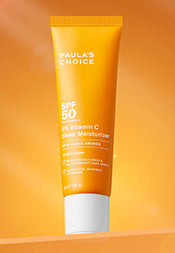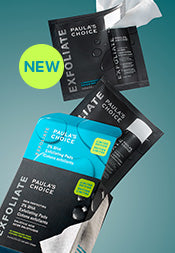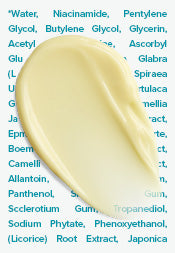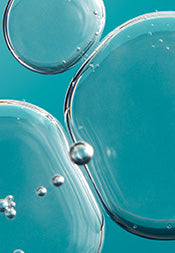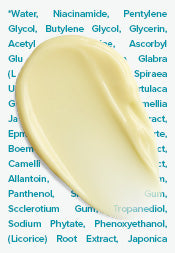Unlocking the Power of Anti-Aging Peptides for Skin

Ever found yourself looking in the mirror and being shocked by what you see: when did those crow’s feet get so prominent? Have you always had fine lines around your mouth? When did those wrinkles on your forehead begin to look so deep?
You’re not alone. The pursuit of youthful-looking skin is a universal desire that transcends time and cultures, with dozens of (supposed) anti-aging elixirs found to have been in use across centuries. With a radiant, youthful complexion still valued today, it should be no surprise that common signs of aging such as wrinkles, sagging skin, and a general decline in skin elasticity are some of the most common pests that we seek to banish with our skincare solutions.
One scientifically-backed skincare ingredient gaining traction for its anti-aging properties is peptides. You’ve likely seen plenty of skincare products with peptides in them, but do you understand how they work? Let’s take a look at how these powerful compounds can help address your anti-aging concerns and restore a more youthful appearance.
Understanding Peptides and Their Benefits for Anti-Aging Skincare
To start with, what exactly is a peptide? In simple terms, it’s a short chain of amino acids that forms the fundamental building blocks of the proteins in our bodies. This includes crucial structural proteins like collagen and elastin which are essential for maintaining our skin's firmness, elasticity, and overall texture. However, as we age, the body’s production of collagen and elastin naturally and gradually declines. This manifests in the visible signs of aging we aim to combat.
This is where peptides step in as a potent anti-aging ingredient to target the root causes of visible signs of aging. When applied topically through skincare products, certain peptides can act as messengers that signal skin cells to perform specific functions, most notably stimulating the production of collagen.
Different types of peptides can even help target specific anti-aging concerns. For instance, Palmitoyl Tripeptide-38, a key ingredient found in our Pro-Collagen Multi-Peptide Booster and Pro-Collagen Peptide Gloss Balm. It works by signalling the skin to synthesise six major components of the skin's matrix, including types of collagen, hyaluronic acid, and fibronectin, which are vital for maintaining skin structure and fullness.
Another notable peptide is Acetyl Hexapeptide-8 (formerly known as Argireline and which can be found in our Pro-Collagen Peptide Plumping Moisturizer.) which has gained recognition for its potential to reduce the appearance of expression lines and wrinkles. Acetyl hexapeptide-8 is a neurotransmitter-inhibiting peptide which interrupts the wrinkle-forming mechanism of the brain in areas where it’s been topically applied to the skin. It has been compared to botulinum toxin in its effectiveness in decreasing the visibility of facial wrinkles and scars.
Certain peptides are also valued for their role in promoting wound healing and improving skin elasticity. These peptides work by delivering elements such as copper and manganese to the skin essential for wound healing, which helps in producing the vital components that keep skin looking youthful and resilient.
Overall, the inclusion of peptides in your skincare routine can offer a multitude of anti-aging benefits for your skin, including:
-
Visible reduction in wrinkles and fine lines
-
Stimulating collagen and fibroblast production to help plump up the skin
-
Improvement of skin elasticity and firmness for skin tightening
-
Enhanced skin hydration and moisture retention
-
Improved skin texture and tone
Beyond structural support for the skin, peptides can significantly enhance skin hydration and moisture retention to help you appear more radiant. Studies also suggest they can aid in the repair of a damaged skin barrier, which is essential for protecting the skin from environmental stressors.
Choosing the Right Peptide Skincare Products
Selecting high-quality peptide products is key to experiencing their full benefits. When browsing the skincare market in Singapore, keep these tips in mind:
-
Look for products that clearly list the specific peptide types they contain, or if they feature a complex with a variety of peptide types for comprehensive action. A trusted product should mention the specific peptide being used so you can understand how it will nourish your skin.
-
Pay attention to the concentration of peptides in the formulation, although brands may not always be transparent about this. If your skin is not used to peptides, having too high a concentration might irritate it.
-
Opt for products from reputable brands, like Paula's Choice, that are known for their commitment to transparent ingredient lists and effective formulations. Poor formulations or ‘hidden’ ingredients may put your skin at risk of irritation or side effects.
-
Be mindful of product packaging. Since peptides can degrade when exposed to air and light, airless pump dispensers or opaque packaging are preferable to traditional jar packaging. Learn the concerns about jar packaging and what are smarter skincare packaging alternatives.
Managing Expectations and Seeing Results
While peptides help stimulate collagen production, improve elasticity, and hydrate the skin, remember that there is never one single ‘quick fix’ for any skincare problem. Aging is still a natural process of the body and while peptides may help combat the visible signs, your results may vary based on genetic, environmental, or other factors.
To see the best possible benefits from using peptide skincare, be sure to use the products consistently and patiently. You can typically expect to see gradual improvements in skin texture and hydration within a few weeks, with more significant changes in firmness and the appearance of wrinkles becoming visible over a few months of regular application.
Peptides also work best as part of a comprehensive anti-aging routine. For enhanced results, consider incorporating other research-backed anti-aging ingredients like retinol, a powerful collagen stimulator and wrinkle fighter; antioxidant-rich Vitamin C for brightening and protection; and hyaluronic acid products for intense hydration. Sunscreen is also an anti-aging non-negotiable to help protect the newly generated collagen and prevent further damage.
Explore the full range of Paula’s Choice peptide-based anti-aging skincare products to unlock a more youthful and radiant complexion.
References for this information:
-
Abu Samah NH, Heard CM. Topically applied KTTKS: a review. Int J Cosmet Sci. 2011 Dec;33(6):483-90. doi: 10.1111/j.1468-2494.2011.00657.x. Epub 2011 May 3. PMID: 21535443.
-
Lum K, M Hirpara M, Pham C, Nguyen M, Mesinkovska N. Acetyl Hexapeptide-8 as a Topical Alternative to Botulinum Toxin: A Review of the Literature. J Drugs Dermatol. 2025 Apr 1;24(4):e31-e32. PMID: 40196949.
-
Velazco de Maldonado GJ, Suárez-Vega DV, Miller-Kobisher B, García-Guevara VJ. Polydioxanone Bioactive Sutures-Acetyl Hexapeptide-8 (Argireline): An Intelligent System for Controlled Release in Facial Harmonization. J Cutan Aesthet Surg. 2023 Oct-Dec;16(4):325-334. doi: 10.4103/JCAS.JCAS_34_23. PMID: 38314369; PMCID: PMC10833482.
-
Pintea A, Manea A, Pintea C, Vlad RA, Bîrsan M, Antonoaea P, Rédai EM, Ciurba A. Peptides: Emerging Candidates for the Prevention and Treatment of Skin Senescence: A Review. Biomolecules. 2025 Jan 9;15(1):88. doi: 10.3390/biom15010088. PMID: 39858482; PMCID: PMC11762834.
-
Dierckx S, Patrizi M, Merino M, González S, Mullor JL, Nergiz-Unal R. Collagen peptides affect collagen synthesis and the expression of collagen, elastin, and versican genes in cultured human dermal fibroblasts. Front Med (Lausanne). 2024 May 1;11:1397517. doi: 10.3389/fmed.2024.1397517. PMID: 38751975; PMCID: PMC11094247.
-
Nguyen HLT, Trujillo-Paez JV, Umehara Y, Yue H, Peng G, Kiatsurayanon C, Chieosilapatham P, Song P, Okumura K, Ogawa H, Ikeda S, Niyonsaba F. Role of Antimicrobial Peptides in Skin Barrier Repair in Individuals with Atopic Dermatitis. Int J Mol Sci. 2020 Oct 14;21(20):7607. doi: 10.3390/ijms21207607. PMID: 33066696; PMCID: PMC7589391.


